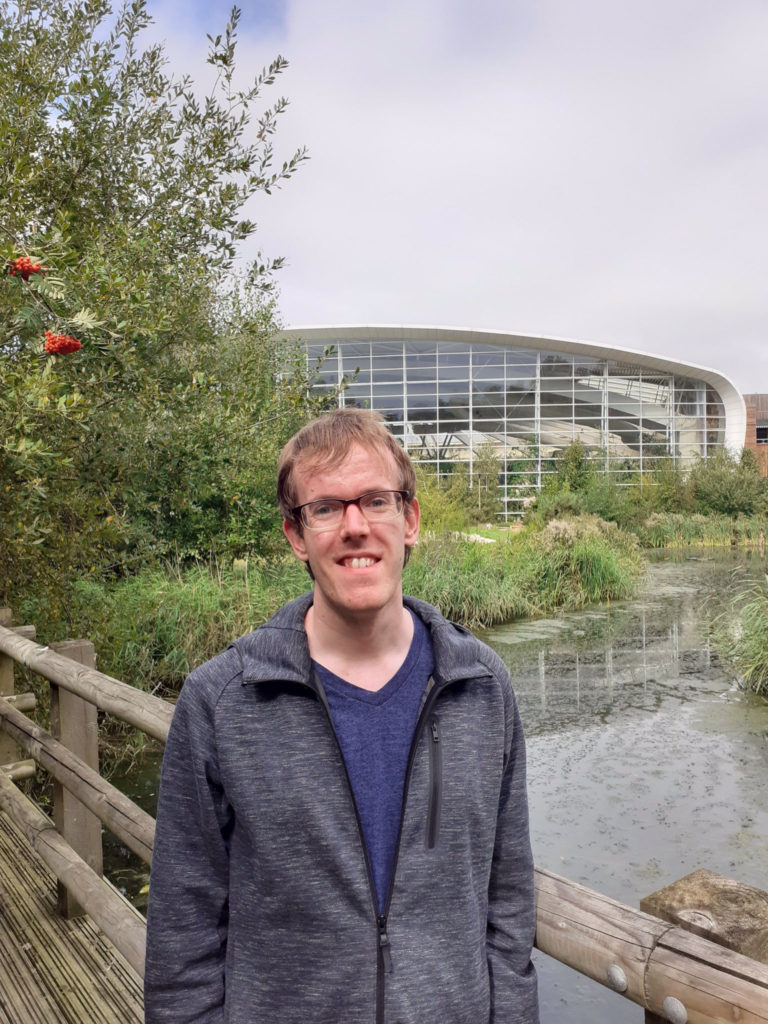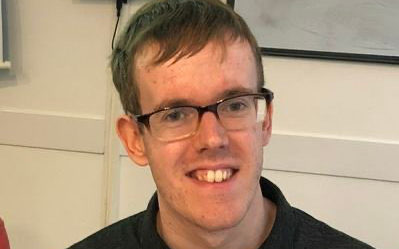My name is Joe Fautley and I’m an Autistic person who also has Dyspraxia and anxiety. Over many years, I have been involved in various projects which enable Autistic people to have a voice in decision making and make a positive impact on society. I’m passionate about raising awareness and understanding of Autism and using my voice and lived experiences to be a positive role model and help inspire and support others.
Despite the challenges it brings, my Autism enables me to be unique and have different opportunities where I can use my voice and lived experience to help educate professionals about Autism and advocate for other Autistic people. For example, I have spoken openly at conferences about my personal experiences of Autism and co-delivered training workshops for a national charity to hundreds of professionals across various locations in England. I have also featured in videos, created a podcast and written a blog about my personal experiences of Autism, mental health and anxiety.
I am determined to make positive change throughout all my work and be a role model for the wider Autistic and neuro-diverse community to ensure that our voices are respected, valued and embraced across society.
I’m featured with other inspiring Autistic people in a video published by the NHS to raise awareness of Autism. The video was published in 2021 for Autism Awareness Week and has currently received over 12,000 views on YouTube. You can watch this video on the link below.
I also have my own individual short video published in 2021 by the NHS in which I talk openly about my Autism. This has currently received over 5,000 views on YouTube. You can watch my video on the link below.
This year, I’ve been nominated for the National Diversity Awards in the Positive Role Model for Disability category. I’m truly honoured and grateful to be nominated. You can vote for me on the link below. Voting closes on 20th May and the shortlist will be announced on 27th June. If I’m lucky enough to be shortlisted, I will be invited to an awards ceremony in Liverpool on 16th September.
www.nationaldiversityawards.co.uk/awards-2022/nominations/joe-fautley/
Being Autistic impacts my life in various ways. I have many challenges with social communication, social interaction, life skills, sensory processing and high anxiety. I often feel the world is unpredictable and confusing. I find it difficult to process information at a fast pace. I encounter anxiety on a daily basis and this impacts my everyday life. Anxiety stops me from doing many things that neuro-typical people can do. For example, currently I’m not able to travel independently or live independently. I always require support from someone who I trust and feel comfortable with.
I was diagnosed with Autism at the age of 7. It was agreed by my parents, the specialist school, which I attended from the ages of 3 to 7, and the paediatrician that it would be beneficial for me to have a formal Autism assessment. I was assessed by a speech and language therapist and clinical psychologist. The process of receiving a formal diagnosis of Autism took around 18 months.
During my school days my Autism was more apparent for me as I knew I was different to most of my peers. I was very negative about having Autism. I found it very difficult to communicate with my peers as I could not initiate or sustain conversations. I struggled to cope with my Autistic challenges and did not speak openly about Autism.
Often throughout my life I’ve asked myself: is having a formal diagnosis of autism positive or negative? For me personally, I believe a diagnosis is extremely positive as it has enabled me over many years to develop a good understanding about autism and how it impacts me on a personal level. This then enables me to think about strategies for better managing some of my autistic characteristics, for example sensory processing.
After leaving school and becoming an adult I started to view my autism differently as I realised if this was taken away, I would not have my own unique personality. Now today as an Autistic adult I’m passionate about being able to take part in opportunities where I can speak openly about my personal experiences and help inspire Autistic people to be confident in who they are and embrace their true identity.
I’m also passionate about educating professionals to help them improve and develop how they engage with and support children and young people with disabilities. I have helped to educate professionals through speaking at conferences and co-delivering national training workshops.
I think that many people often assume that if an Autistic person has succeeded in education, then they do not need any other support. From my experience, even though I have done well with my academic studies, I still need a lot of support with everyday life skills. It’s very important for people to avoid making assumptions: a person who is intelligent may still have significant needs impacting on their daily life.
People can also misunderstand Autism by thinking that all of us are the same. Although we share common traits, we are all individuals with our Autism impacting us in different ways. No one person is the same – it’s very important for people to take the time to listen and understand our individual needs and find out, for example, what reasonable adjustments we may need to support us.
It’s essential for everyone in society to understand that Autistic people face many extensive challenges because the social world is not designed for us. We are not broken, we are unique. Autistic people have many important strengths and great potential to succeed through their own personal talents with the right support from people who take the time to listen and understand our own individual needs.
Thank you so much for taking the time to read my blog.
…



0 Comments